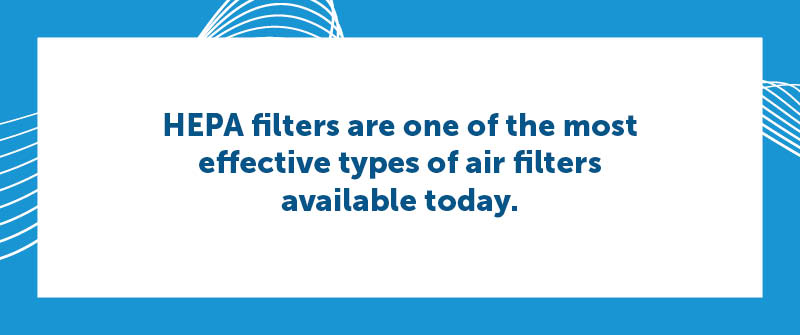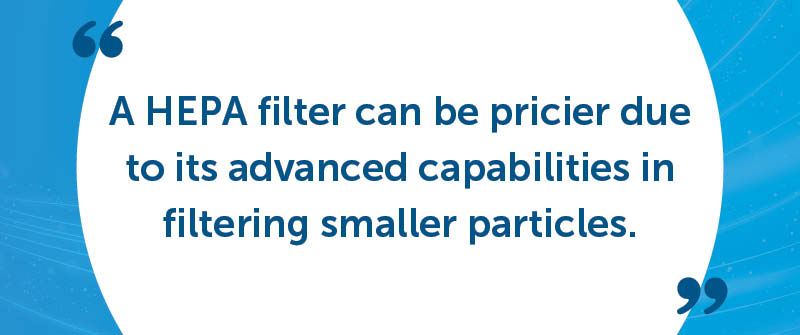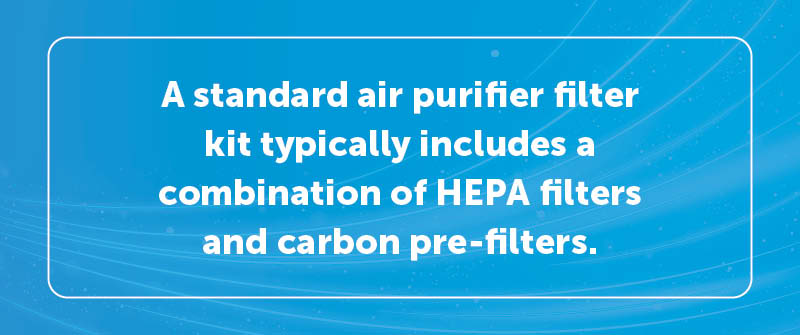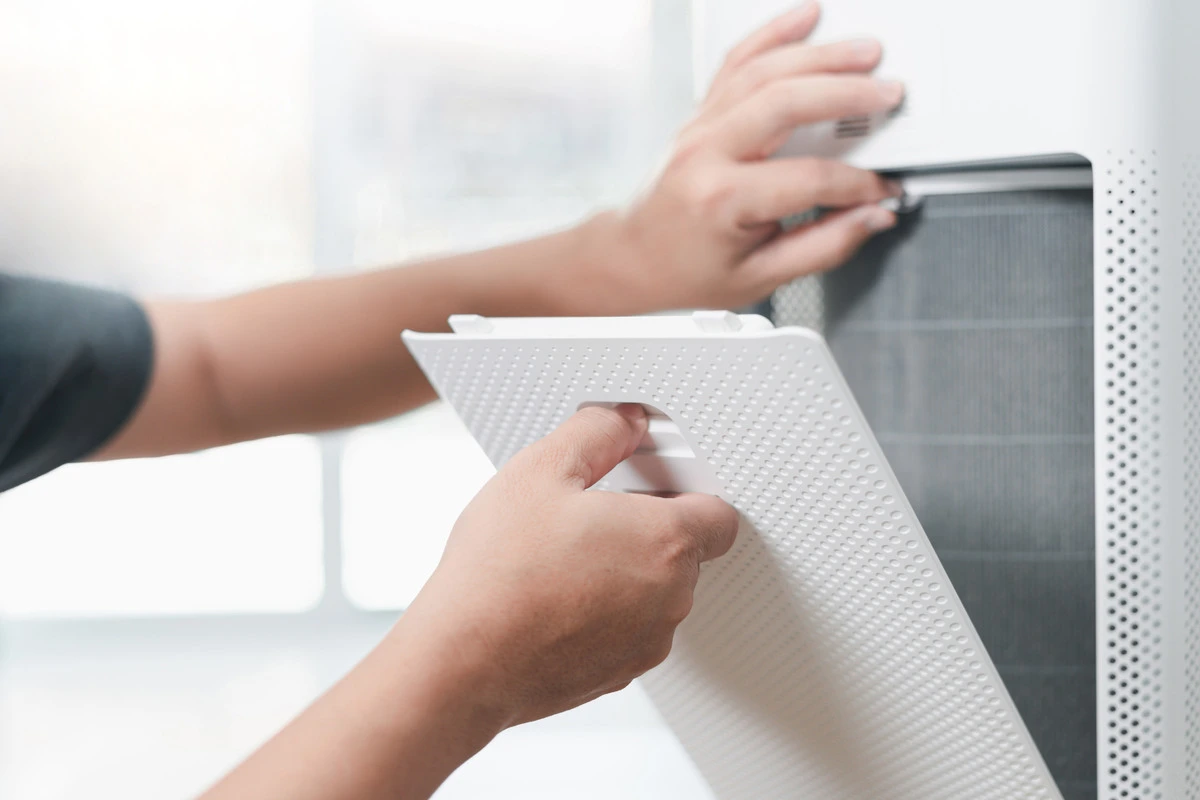What Are Air Purifier Filters?
Air purifier filters are crucial components of air purification systems, designed to improve indoor air quality by trapping harmful particles and pollutants found in the air. These filters work by capturing various contaminants, including allergens, dust, pet dander, and other impurities that can affect health.
Definition And Purpose Of Air Purifier Filters
At their core, air purifier filters function to clean the air we breathe indoors, making them essential for promoting a healthy living environment. The primary role of these filters is to capture airborne particles, ensuring that clean, fresh air circulates throughout the space. Using specialized materials, these filters trap a significant percentage of pollutants, thereby enhancing air quality and reducing the risk of health issues associated with poor indoor air. Pre-filters capture larger particles, particularly effective at capturing larger airborne particles like pet hair and dust.
What Are Air Purifier Filters?
Air purifier filters are an essential component of air purifiers, designed to capture airborne particles, allergens, and pollutants, thereby improving indoor air quality. These filters work by drawing in air, trapping pollutants, and releasing clean air back into the environment. Air purifier filters come in various types, each with unique characteristics and benefits. True HEPA filters, for instance, are renowned for their ability to capture 99.97% of particles as small as 0.3 microns, making them highly effective against dust, pollen, and other microscopic contaminants. Activated carbon filters excel at removing household odors and volatile organic compounds (VOCs), while pre-filters capture larger particles, extending the life of the primary filter. By incorporating these filters, air purifiers can significantly enhance the air quality in your home, ensuring a healthier living environment.
Benefits Of Using Air Purifier Filters
Using air purifier filters offers numerous benefits that contribute to a healthier and more comfortable living space. Firstly, they significantly improve indoor air quality by capturing airborne pollutants, allergens, and particles, creating a cleaner environment. This is particularly beneficial for individuals with allergies or respiratory issues, as air purifier filters can help alleviate symptoms by removing irritants from the air. Additionally, activated carbon filters are highly effective at eliminating household odors, such as those from cooking, pets, or smoke, leaving your home smelling fresh and clean. For pet owners, air purifier filters can capture pet dander and hair, reducing the amount of pet allergens in the air and making the home more comfortable for allergy sufferers. Overall, the use of air purifier filters ensures a healthier, fresher, and more pleasant indoor environment.
Common Pollutants Targeted By Filters
Air purifier filters are effective at targeting several common indoor pollutants. These include dust, pollen, smoke, mold spores, volatile organic compounds (VOCs), and pet hair. By removing these contaminants from the air, air purifier filters help alleviate allergy symptoms, prevent asthma attacks, and reduce the spread of airborne bacteria and viruses.
Importance Of Maintaining Indoor Air Quality
Maintaining excellent indoor air quality is vital for overall health and well-being. Continuous exposure to indoor air pollutants can lead to respiratory issues, allergies, and other health problems. Air purifier filters play an essential role in mitigating these risks by removing harmful particles from the air. By investing in high-quality air purifier filters from trusted providers like DiscountFilters.com, homeowners and consumers can take proactive measures to create a safer and more comfortable living environment.
How Do HEPA And Carbon Filters Differ?
Characteristics Of HEPA Filters
HEPA filters, or High-Efficiency Particulate Air filters, are one of the most effective types of air filters available today. They are designed to capture at least 99.97% of all particles larger than 0.3 microns, including dust, pollen, mold spores, and pet dander, and larger particles like pet hair. This efficiency is possible due to their dense fiberglass mat construction, which ensures even the smallest contaminants are trapped. HEPA filters are particularly beneficial for individuals with allergies or asthma, as they significantly improve indoor air quality by reducing airborne allergens.
Despite their effectiveness, one potential downside of HEPA filters is that they can restrict airflow more than other types of filters. This restriction might require more powerful fans in an air purification system to maintain adequate circulation.

Functions Of Carbon Pre-Filters
Carbon pre-filters operate differently and serve a distinct purpose compared to HEPA filters. These filters utilize activated carbon or charcoal to remove odors, gases, and volatile organic compounds (VOCs) from the air. Unlike HEPA filters, they do not capture particulate matter but excel at neutralizing smells from pets, cooking, smoke, or even chemical off-gassing.
An essential feature of carbon pre-filters is their capacity to prolong the life and efficiency of the primary filter types, like HEPA, by capturing larger particles, such as pet hair and dust, and preventing the tiny pores of the primary filter from clogging too soon.
Comparison: Efficiency And Applications
In terms of efficiency, HEPA filters are superior when it comes to capturing microscopic particles, making them ideal for environments that require stringent air quality control, such as hospitals and laboratories. On the other hand, carbon pre-filters excel in managing odors and airborne chemicals, making them invaluable in household and commercial environments where air freshness is a priority.
Many modern air purifiers incorporate both HEPA and carbon pre-filters to provide comprehensive air cleaning. This combination ensures not only a reduction in airborne particulate matter but also the removal of odors and gases, resulting in a significant improvement in overall air quality.
When Should You Replace Air Purifier Filters?
When To Replace Your Air Purifier Filters
Ensuring the efficiency and effectiveness of your air purifier largely depends on the timely replacement of its filters. Understanding when this is necessary is crucial to maintaining good indoor air quality and the longevity of your device.
Signs That Indicate Filter Replacement
Several signs suggest it’s time to replace your air purifier filters. A noticeable decline in the purifier’s performance, persistent odors despite regular use, and visible dirt or discoloration on the filter, including pet hair, are clear indicators that a replacement is needed. If your purifier’s airflow becomes weaker, it may be due to a clogged filter that obstructs efficient operation.
Manufacturer Recommendations
Generally, manufacturers provide guidelines for filter replacement based on the type of filter and its usage environment, but how often should you change air purifier filters? High-efficiency particulate Air (HEPA) filters typically require replacement every 6 to 12 months, whereas carbon pre-filters may need to be changed every 3 months. Not adhering to these timelines can lead to inadequate air purification and increased strain on the device.
Impact Of Not Replacing Filters On Performance
Neglecting to replace filters at the recommended intervals can severely impact an air purifier’s ability to clean the air. Clogged or old filters lose their filtration efficiency, allowing pollutants back into the air, which might elevate allergy symptoms or asthma discomfort for occupants. Additionally, it forces the device to work harder, potentially shortening its lifespan and increasing energy consumption.
At DiscountFilters.com, we provide a wide variety of replacement filters to ensure that you can keep your air purification systems running smoothly. Don’t compromise on air quality—explore our selection to find the right fit for your devices at competitive prices, ensuring both your health and household budgets are well taken care of.
Choosing The Right Replacement Air Purifier Filters
Selecting the right replacement air purifier filters is crucial for maintaining the efficiency and effectiveness of your air purifier. Here are some key factors to consider:
- Compatibility: Ensure the filter is compatible with your specific air purifier model. Check the manufacturer’s guidelines or consult the user manual to find the correct filter type.
- Filter Type: Choose a filter that suits your needs. For instance, True HEPA filters are ideal for capturing allergens, while activated carbon filters are better for removing odors.
- Filter Size: Select a filter that matches your air purifier’s recommended size to ensure a proper fit and optimal performance.
- Filter Quality: Opt for high-quality filters that meet or exceed the original manufacturer’s standards. This ensures better filtration and longer-lasting performance.
- Price: Balance the cost of the filter with its performance and lifespan. While higher-quality filters may have a higher initial cost, they often provide better value over time due to their effectiveness and durability.
By considering these factors, you can choose the right replacement air purifier filters that will keep your air purifier running efficiently and maintain a healthy indoor environment.
Are Air Purifier Filters Cost-Effective?
When considering the effectiveness of air purifier filters, homeowners and consumers often weigh their costs against benefits. Air purifier filters, though they require an initial investment and occasional replacement, can prove to be cost-effective over time.
Cost Vs. Benefits Of Maintaining Air Purifiers
The initial cost of purchasing an air purifier filter might seem significant, but when considering the long-term health benefits and enhanced air quality, it becomes a worthy investment. By capturing small particulates, allergens, and pollutants, these filters reduce air contamination, potentially minimizing health expenditures related to respiratory issues and allergies.
Long-Term Savings By Preventing Health Issues
Clean indoor air provided by air purifiers can prevent exacerbation of conditions such as asthma and allergies, potentially saving money on healthcare expenses. Since higher-quality filters can capture a broader range of contaminants, investing in better filters could prevent more health-related problems than cheaper options might allow, further enhancing their cost-effectiveness.
Comparison Of Initial And Recurring Costs
Initial costs of air purifier filters vary depending on type and brand. For instance, a HEPA filter can be pricier due to its advanced capabilities in filtering smaller particles. Despite these initial costs, recurring costs tend to be manageable. Typically, high-quality filters last longer, reducing the frequency of replacements and thus saving money over time.
For budget-sensitive consumers, it’s essential to evaluate both initial costs and the life expectancy of filters. This way, you can choose a model that aligns with your budget while still meeting your air quality needs. Additionally, taking advantage of discounts and promotions from suppliers like DiscountFilters.com can further enhance the affordability of premium filters.
Ultimately, the cost-effectiveness of air purifier filters depends on factors including the filter type, maintenance frequency, and the specific air quality needs of your household. Informed and strategic purchasing can result in a healthier home and financial savings.

What Brands Offer Reliable Air Purifier Filters?
When selecting air purifier filters, it’s crucial to consider brands that offer reliability and quality. With numerous options available, identifying reputable brands can help ensure that your air purifier operates optimally and effectively. Here, we explore some renowned brands known for their superior-quality filters.
Overview Of Popular Brands
Several brands stand out in the air purifier industry due to their extensive range and proven track record. Notable names include Honeywell, Dyson, Levoit, and Blueair. These brands have consistently provided excellent air filtration products that maintain indoor air quality by capturing pollutants and allergens.
In particular, Honeywell’s filters are acknowledged for their durability and efficiency in capturing a substantial range of particles, while Dyson offers innovative filter technologies—combining HEPA and activated carbon filters for comprehensive air purification.
Reputation And Customer Reviews
The reputation of a brand is often reflected in customer reviews and industry recognition. It is beneficial to look at user feedback and professional reviews to gauge the satisfaction levels of those who have already invested in these products. For instance, Blueair and Levoit frequently receive praise for their quiet operation and powerful purification capabilities, making them favorites in homes needing quieter air-cleaning solutions.
DiscountFilters.com is also a trusted provider, offering a wide range of compatible and replacement filters that meet professional quality standards and customer satisfaction criteria.
Product Variety And Availability
The variety and availability of products offered by a brand can directly impact your decision. Brands like DiscountFilters.com provide comprehensive compatibility with a vast array of older and newer models. By visiting our website, consumers can find filters for a broad spectrum of air purifiers and get detailed product information, such as filter lifespan and efficiency ratings, to make informed purchasing decisions.
Ultimately, choosing reliable brands ensures longevity and effectiveness in maintaining a healthy indoor environment. By investing in products from reputable companies, homeowners can enjoy the peace of mind that comes with clean, purified air.
Air Purifier Filter Reviews
When researching air purifier filters, reading reviews from multiple sources can provide valuable insights into their performance, durability, and value. Here are some aspects to look for in reviews:
- Filter Effectiveness: Assess how well the filter captures pollutants and allergens. Look for reviews that mention the filter’s ability to improve air quality and reduce allergy symptoms.
- Filter Lifespan: Consider how long the filter lasts before needing replacement. Reviews that discuss the filter’s longevity can help you determine its cost-effectiveness.
- Filter Maintenance: Check if the filter is easy to clean and maintain. User-friendly filters that require minimal maintenance are often more convenient and cost-effective.
- Filter Cost: Evaluate whether the filter is reasonably priced compared to its performance and lifespan. Reviews that compare the filter’s cost to its benefits can help you make an informed decision.
By reading comprehensive reviews, you can gain a better understanding of which air purifier filters offer the best performance and value for your needs.
How Do You Install New Air Purifier Filters?
Step-By-Step Installation Guide
Changing your air purifier filters is a crucial step in maintaining the efficiency and performance of your air purification system. Here is a straightforward guide to help you install new air purifier filters on your own:
1. Power Down The Air Purifier
Before beginning the installation process, ensure your air purifier is switched off and unplugged from the power source. This is essential for your safety and to protect the unit from damage during the filter replacement.
2. Access The Filter Housing
Most air purifiers have an easily accessible panel or cover. Check the user manual specific to your model for precise instructions on locating and opening the filter compartment. Carefully remove the panel to expose the old filter.
3. Remove The Old Filter
Extract the old filter from its compartment. It’s advisable to gently clean the compartment with a damp cloth to remove any accumulated dust and pet hair before installing the new filter. Proper disposal of the old filter is critical to avoid releasing trapped particles back into the environment.
4. Install The New Filter
Unbox your new filter and align it correctly in the designated slot. Note any airflow direction arrows on the filter to ensure proper installation. A snug fit is crucial for optimal performance; thus, do not force the filter into place.
5. Reassemble And Test
Once the filter is in place, reattach the cover/panel securely. Plug the air purifier back in and turn it on. Verify that it’s operating correctly, and reset any filter replacement indicators if your device is equipped with this feature.
Common Pitfalls To Avoid
Ensure that you handle the filter by the edges to prevent contamination from oils on your hands. Avoid over-tightening screws or panels which might damage the unit. Double-check the manual for any specific quirks of your air purifier model.
Video Resources And Tutorials
Navigating through written instructions can be overwhelming, but don’t worry—there are plenty of video resources available online that demonstrate the filter replacement process vividly. Look for tutorials that feature your specific model to ensure the best guidance.
What’s Included In An Air Purifier Filter Kit?
When looking to maintain optimal air quality in your home, understanding what’s included in an air purifier filter kit is essential. These kits are designed to simplify the maintenance of your air purifier, ensuring it continues to function efficiently to remove allergens, dust, and other pollutants from your air.
Components Of A Typical Filter Kit
A standard air purifier filter kit typically includes a combination of HEPA filters and carbon pre-filters. The HEPA filter is responsible for capturing small particles like pollen, dust mites, and mold spores, ensuring that your air is as clean as possible. The carbon pre-filter, on the other hand, targets odors and volatile organic compounds (VOCs), enhancing the overall air quality by addressing pollutants that contribute to unpleasant smells.
In some instances, a single filter may combine the functions of both a HEPA filter and a carbon filter, offering a space-saving and integrated solution. Additionally, kits may provide multiple pre-filters, allowing for extended use before needing to purchase replacements.

Benefits Of Pre-Filter And HEPA Filter Combination
The combination of pre-filters and HEPA filters in a kit is beneficial for a couple of reasons. Firstly, the pre-filter extends the lifespan of the HEPA filter by capturing larger particles and preventing them from clogging the HEPA filter prematurely. Secondly, this combination provides comprehensive filtration capabilities, effectively tackling both particulate matter and gasses in the air. By using these two types of filters together, your air purifier can maintain higher performance levels over time, making it a more efficient investment.
How Kits Simplify Filter Replacement
Filter kits simplify the replacement process by ensuring that you have the right products for your specific air purifier model. Instead of purchasing parts separately, kits provide a convenient all-in-one solution, often at a better price point than if you were to buy each component individually. This not only ensures compatibility and efficiency but also saves time and avoids the confusion of matching individual filter specifications.
DiscountFilters.com offers a wide range of replacement filter kits that guarantee 100% compatibility with the top brand air purifiers. With options for free shipping and easy returns, acquiring the right filter kit for your needs is both convenient and reliable.
Air Purifier Filter Certification
When choosing air purifier filters, it’s important to look for certifications from reputable organizations. These certifications ensure that the filters meet specific standards for quality and safety. Here are some key certifications to consider:
- HEPA Certification: This certification ensures that the filter meets the HEPA standard for capturing 99.97% of particles as small as 0.3 microns. True HEPA filters are highly effective at removing dust, pollen, and other microscopic contaminants.
- AHAM Certification: The Association of Home Appliance Manufacturers (AHAM) certification verifies the filter’s performance and energy efficiency. Filters with this certification have been tested for their ability to improve air quality and operate efficiently.
- UL Certification: Underwriters Laboratories (UL) certification confirms that the filter meets safety standards for electrical and fire hazards. This certification provides peace of mind that the filter is safe to use in your home.
By considering these certifications, you can choose air purifier filters that are reliable, effective, and safe, ensuring improved indoor air quality and a healthier living environment.
Conclusion
Recap Of Air Purifier Filters’ Importance
Air purifier filters are a crucial component in the quest for cleaner indoor air. They play a vital role in removing harmful particles such as dust, pollen, and other airborne irritants, thereby improving the overall air quality within a home. Utilizing effective filters like HEPA and carbon pre-filters can significantly reduce the presence of allergens, odors, and volatile organic compounds, offering a healthier living environment.
Final Thoughts On Choosing And Maintaining Filters
When it comes to selecting air purifier filters, understanding the specific needs of your household is essential. Filters must be matched appropriately with the air purifier to ensure optimal performance. Furthermore, regular maintenance, including timely filter replacement, is vital to keeping the air purification system operating efficiently. By diligently managing air quality, homeowners can safeguard not only the functionality of their purifiers but also the health and well-being of their family members.
Encouragement For Regular Air Quality Management
Proactive air quality management includes choosing high-quality filters, adhering to a consistent replacement schedule, and using the right types of filters for your specific air quality concerns. Whether you are mitigating allergens or reducing unwanted odors, the right strategy and tools can make a significant difference. Investing effort in these areas ensures that your home remains a sanctuary of fresh and clean air.
Experience the benefits of cleaner air today with DiscountFilters.com. Find a comprehensive selection of top-notch air purifier filters designed for superior performance at competitive prices. Keep your indoor environment healthy and refreshing with filters tailored to your specific purifier needs. Discover great options for your air purifier and breathe easier knowing you’re enjoying clean, safe air.

